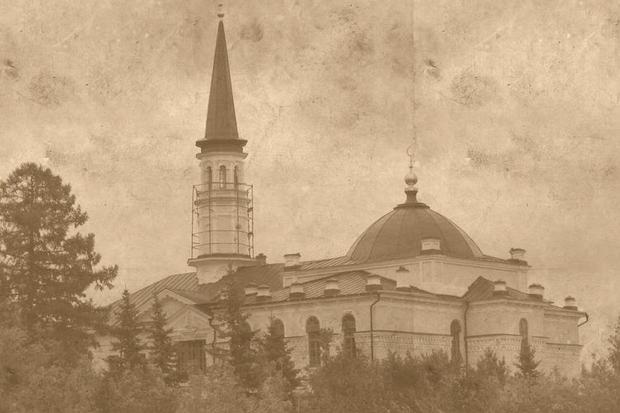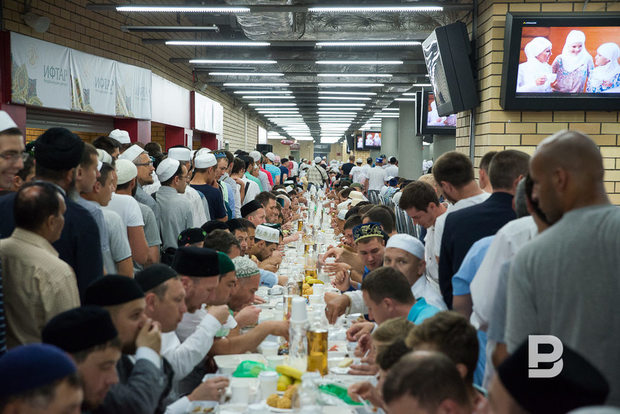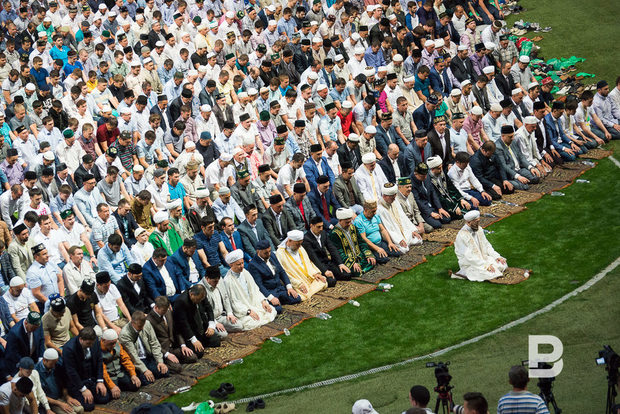Talgat Tadjuddin: ‘God gives good news in Ramadan… President of Turkey finally pardoned’
Chief Mufti tells about fasting during the atheistic era, sweets from Kazan hazrats and little town criers
Holy Muslim Ramadan months came to its end. On the threshold of Eid al-Fitr (the end of Ramadan), a correspondent of Realnoe Vremya talked to the Chief Mufti, chairman of the Central Muslim Spirituality Directorate of Russia Talgat Tadjuddin. The head of the directorate shared his memories about his first fasting, designation as a head of the Muslims of Russia and also expressed his satisfaction with the improvement of Russia-Turkey relations.
To fast without consequences
Hazrat Mufti, could you tell about your first fasting and the end of fasting, please?
It was a long time ago. I was 14-15. This year I've fasted for the second time in the height of summer. At that time there were not many people who fasted. I mean there were not many young people who did it. But we had many old people who fasted and visited tarawihs (extra prayers performed by Sunni Muslims at night in the Islamic month of Ramadan). Mardjani Mosque was the only mosque in Kazan at that time. We lived in Zakabanny (behind the Lake Kaban) district. During iftar, when the sun was setting, everything was organised in the minaret. As kids, we ran and shouted that azan (call to prayer) ended because the very prayer was not heard outside the mosque…
I had many iftars.
In 1980, when I was elected (Editor's Note: Mufti and chairman of the directorate), we moved to Ufa. We fasted in June-July, the weather was very hot. In the 1983-1984s, there was an unbearable heat – up to 35 degrees. I remember a delegation from India visited us.

'In 1980, 10-15 people used to come to tarawih to the Tukay Mosque. Then 20-30 people started to come. Our drivers transported them. Now, alhamdulillah, many people go to mosques, the mosques are full of people.' Photo: shurarb.ru
I remember how in 1980, 10-15 people used to come to tarawih to the Tukay Mosque (Editor's Note: first Cathedral Mosque in Ufa on Tukaeva Street). Then 20-30 people started to come. Our drivers transported them. Now, alhamdulillah (Editor's Note: Praise be to God), many people go to mosques, the mosques are full of people. Now there are tents near our mosque – hundreds of people come to break their fasting.
Anyway the Soviet era was an atheistic period. Were not people afraid of the consequences of fasting and celebration of Eid al-Fitr?
There were not any consequences. What you say happened in the 1930s. I was told by imams: when pupils came to school, teachers welcomed them in the porch and offered to drink water from a spoon. If a pupil drank it, he could attend a lesson. If not, it means the pupil fasted, he was not allowed to enter the school. Or at nights, when people woke up for suhur (Editor's Note: meal consumed early in the morning by Muslims before fasting), they used to close the windows with pillows. It all happened in the 1930s.
After the war, the situation changed. There was not any punishment for it. People who wanted to fast or celebrate a commemorative prayer did it without problems. They also used go to mosques.
Sweets from hazrats
How did people use to organise iftars after the war?
Iftars took place mainly at homes. I remember as early as 1970-1980s, imam's agenda was filled one month in advance, religious people used to invite them. Iftars at home were very beautiful, especially in spring, autumn or winter. It is complicated to do it in summer – it gets dark very late. It was a family and simple event, all relatives used to gather. It was especially good in villages when even kids came and said tarawih prayers.

Was the atmosphere of iftars and the celebration of that time different from today's events?
Both in the past and now the atmosphere is always good, pleasant. Iftar is not just an eating. On the one hand, it's time to help more the poor, orphans, economically disadvantaged people. On the other hand, middle-class and rich people also can come. It unites people at the table who eat together. Prophet Muhammad used to tell: 'A person who fed a fasting person, not obligatorily poor, his or her reward will be equal to the fasting person's reward'. The more people will participate, the more understanding and mercy they will have. People get closer to each other.
I had to hear that sweets used to be handed during Eid al-Fitr in Kazan. Do you remember it?
When I was young and returned from Bokhara, people did it. We, Hazrat Ahmadhadi, Hazrat Abdulkhamit, Uncle Faкvaz always used to visit the cemetery, especially on commemorative days, during Eid al-Fitr after the prayer to pray for our mothers, hazrats, Gabdulla Tukay and other celebrated people. Then a table was laid. Indeed children were handed sweets.
Good news from Turkey
Can you sum up this year's Ramadan?
Alhamdulillah, we end it successfully. We did many jobs, also organised the Night of Decree (Editor's Note: an especial time during Ramadan). We were frightened by hot weather, words that it would be difficult. But God's grace was seen from the very beginning: moderate hot weather, excellent rains, everything was green, wheat was doing well. All regions call and inform how many iftars they organised, how many people came to tarawihs. It was amazing, thanks God. God gives good news. Although the state of affairs in the world is difficult, there is good news: over 160 Syrian settlements signed an agreement on the peace process; President of Turkey finally pardoned because it was like having a heavy heart. We are getting closer, start to understand each other and trust, God willing.

Recently the Kazan Arena stadium hosted a regional iftar. But we did not see you there. Were you involved in another activity?
I got an invitation. I wanted to visit it very much. But I could not do it for family reasons: my spouse was at hospital. But I visited it last year, alhamdulillah.
In conclusion, your wishes for our readers by Eid al-Fitr.
I cordially congratulate all people on Eid al-Fitr! Might Supreme Allah accept all your worship and fastings, give health and strengthen the understanding! I wish peace and happiness to all our compatriots! I hope God is satisfied.
Amen. Thank you! I congratulate you too!